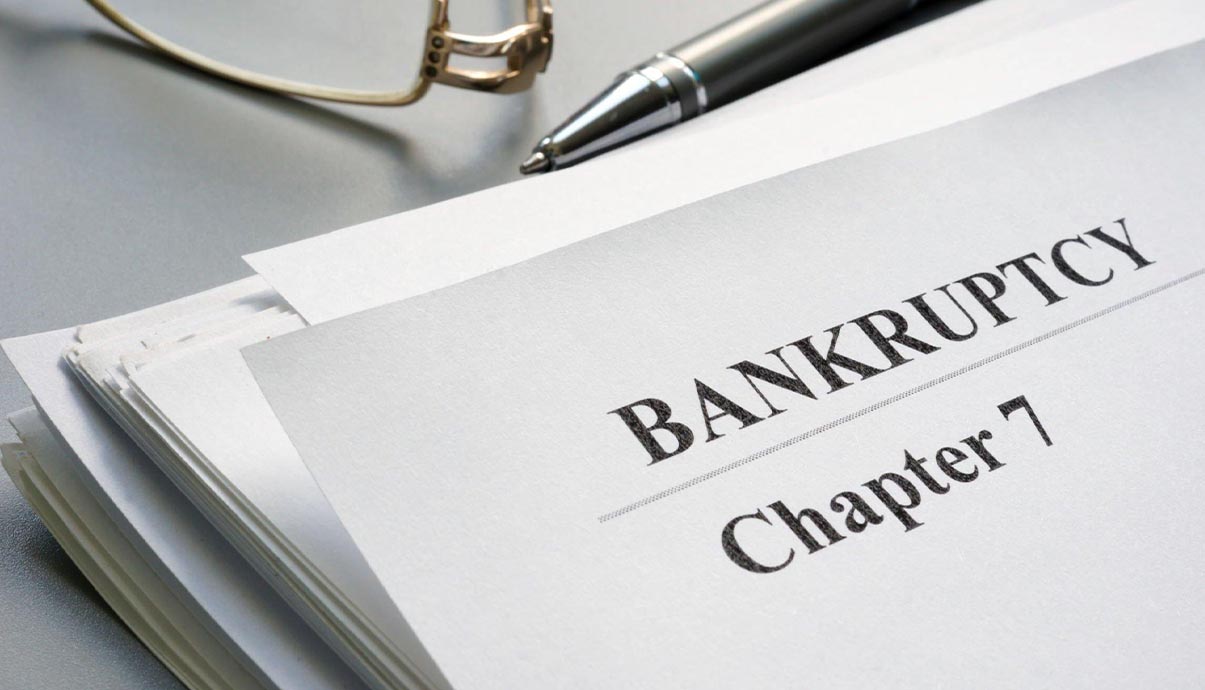According to the Administrative Office of the U.S. Courts, nearly 612,561 business entities and individuals have filed for bankruptcy in the last couple of years. Bankruptcy is rightly seen as usually being the last appropriate option for people and their businesses to take to manage their debts.
Bankruptcy is a federal forum that allows debtors (people or businesses who owe money) to manage their relationships with creditors (people or businesses to whom money is owed) when the debtor can longer survive financially without the help of an experienced bankruptcy attorney and the assistance of the bankruptcy law and the bankruptcy court. When debt has taken control of your life, you may be able to put it back in its place by filing bankruptcy to reorganize your monetary obligations or discharge them entirely.
Different legal circumstances call for different bankruptcy solutions. Read on as we discuss the most commonly filed bankruptcy chapters and where you can find a bankruptcy attorney in Miami with over 31 years of experience.
Chapter 7: Liquidation

Chapter 7 of the Bankruptcy Code is titled “Liquidation” and is the most common type of bankruptcy utilized by individuals and married couples. Chapter 7 allows individuals to wipe out their dischargeable debts in exchange for surrendering (or repurchasing) their non-exempt (unprotected) assets and at the risk of the Chapter 7 Trustee making claims against friend and family members involved in their financial lives. Because of the strong-arm powers the Bankruptcy Code grants to Chapter 7 Trustees, one must be very cautious in choosing Chapter 7 relief. If you have assets that are not protected by law, or if you have involved friends and family members in your financial life (i.e., you are paying for a car under their name, or you are on title to their home or bank account, or if you have repaid in the the past year debts you owed to them or otherwise transferred assets to them), Chapter 7 may not be the right solution for you. Chapter 7 is also rarely, if ever, the right choice for a corporation or limited liability company, because these non-individual entities are not eligible to receive a discharge of debts in Chapter 7. Chapter 7 is for individuals or married couples with little income, no non-exempt assets, and who have not involved friend or family members in their financial lives.
Chapter 13: Reorganization for Individuals (and Married Couples)
Chapter 13 bankruptcy is a reorganization option only available for individuals. If a corporation or an LLC wishes to reorganize its debts, it must file a (traditional) Chapter 11 bankruptcy or the recently created Subchapter V bankruptcy. Chapter 13 is for people who do not qualify for Chapter 7 (because of excessive income) or for people who qualify for Chapter 7, but who prefer to file a Chapter 13 to avoid a Chapter 7 Trustee taking their non-exempt assets or making demands upon their friends and family members, or who cannot meet the Chapter 7 Trustee’s terms for the repurchase of non-exempt assets or to protect friends and family who received payments or other transfers from the debtor.
Although some people file a Chapter 13 to avoid an aggressive Chapter 7 Trustee, many people choose a Chapter 13 over a Chapter 7, because Chapter 13 offers reorganizational options that are not available in Chapter 7, such as the ability to catch up on past due mortgages, homeowners association assessments, child support, alimony, and/or income taxes, the ability to lower payments on cars, boats, furniture and other personal property, as well as to discharge equitable distribution obligations arising from a divorce. It is important to note that a Chapter 13 plan rarely requires a person to repay all of their credit cards, medical bills, and other unsecured debts; most people pay only a tiny fraction of these debts while still achieving a discharge that eliminates them. Chapter 13 plans typically range in length from three to five years, depending on the debtor’s specific circumstances. Sometimes a shorter plan is preferable, but sometimes a longer plan enables the debtor to have lower monthly payments to achieve their Chapter 13 goals such as protecting a home from foreclosure, protecting a car from repossession, or paying off priority debts such as alimony, child support or income taxes.
Find a Bankruptcy Attorney in Miami with More than Three Decades of Bankruptcy Law Experience at The Bankruptcy Law Offices of James Schwitalla, P.A.
If you’re in need of an experienced bankruptcy attorney in Miami, The Bankruptcy Law Offices of James Schwitalla, P.A, are ready to serve you. With more than 31 years of experience in South Florida bankruptcy courts as a bankruptcy attorney, Attorney Schwitalla and his team will focus their efforts on your financial life, inform and advise you, answer your questions, and navigate you through the bankruptcy process from consultation through filing and discharge!
Learn more now about a customized solution for your specific circumstances by getting in touch with us today!
